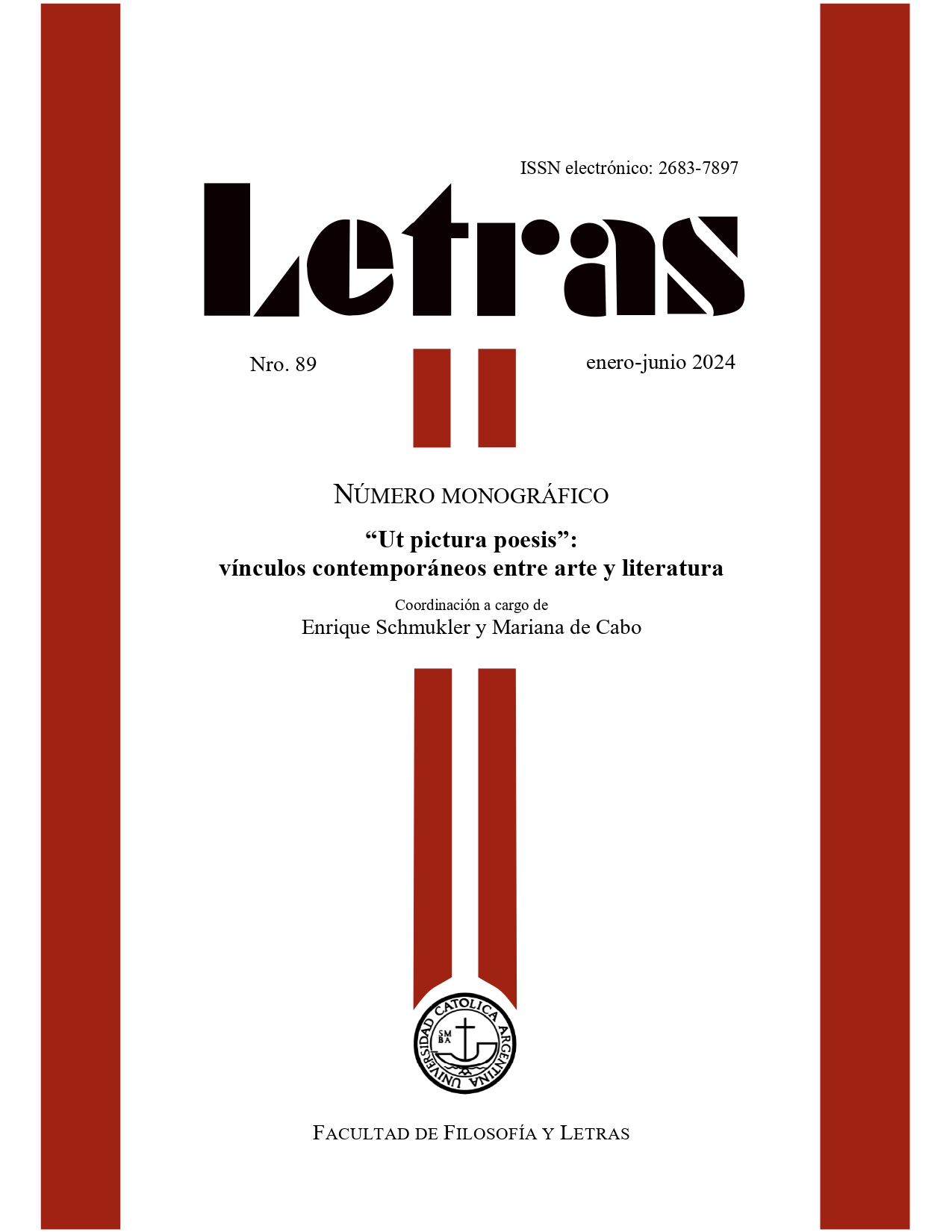Temporality “Polaroid”: Childhood and Photography in Desierto Sonoro by Valeria Luiselli
DOI:
https://doi.org/10.46553/LET.89.2024.p325-334Keywords:
Novel, Childhood, Photography, Latin-American LiteratureAbstract
The novel Lost Children Archive (2019), translated into Spanish as Desierto sonoro (2020), as its title suggests, emphasizes a universe of sounds. However, photographic imagery is interwoven throughout the narrative in various ways. In fact, the photographs taken with a Polaroid camera during the family’s journey are included as accompanying material, serving as testimony that the journey took place. This article focuses on analyzing the function of photography and the photographic elements in the novel through their links to childhood. In a brief reflection, the female narrator, who is also a mother, defines the distance between two life stages that appear to be in opposite spheres: “Adults pose for eternity; children, for the moment” (2020: 92). The different ways these two life stages approach the photographic act highlight contrasting experiences of temporality, a question that this text will explore further.
Downloads
References
BARTHES, Roland, 1989 [1980], La cámara lúcida: nota sobre la fotografía, Barcelona, Paidós.
BUTLER, Judith, 2009 [2006], Vida precaria: el poder del duelo y la violencia, trad. Fermín Rodríguez, Buenos Aires, Paidós.
BUTLER, Judith, 2010 [2009], Marcos de Guerra. Vidas lloradas, Madrid, Paidós.
BUTLER, Judith, 2017 [2015], Cuerpos aliados y lucha política. Hacia una teoría performativa de la asamblea, trad. María José Viejo, Barcelona, Paidós.
DIDI-HUBERMAN, Georges, 2006 [2000], Ante el tiempo: historia del arte y anacronismo de las imágenes, trad. Oscar Antonio Oviedo Funes, Buenos Aires, Adriana Hidalgo.
DUBOIS, Philippe, 2008 [1990], El acto fotográfico y otros ensayos, trad. Víctor Goldstein, Buenos Aires, La marca editora.
GIL, Silvia L., 2014, “Ontología de la precariedad en Judith Butler. Repensar la vida en común”, Éndoxa: Series filosóficas, no. 34, pp. 287-302.
HALFON, Mercedes, 2019, “Desierto sonoro, la novela revelación de la mexicana ValeriaLuiselli”, Página/12. Radar Libros, 22 de diciembre de 2019.
KOHAN, Walter, 2007, Infancia, política y pensamiento. Ensayos de filosofía y educación, Buenos Aires, Del Estante.
LOGIE, Ilse, 2020, “Los niños perdidos, de Valeria Luiselli: el intérprete ante las vidas ‘dignas de duelo’”, Iberoamericana, XX, 75, pp. 103-116.
LUISELLI, Valeria, 2020 [2019], Desierto sonoro, Buenos Aires, Sigilo.
MARISTAIN, Mónica, 2020, “‘Me tuve que volver feminista a chingadazos’: Valeria Luiselli”, Maremoto (Maristain), Solo cultura, 21 de abril 2020. Disponible en: https://monicamaristain.com/me-tuve-que-volver-feminista-a-chingadazos-valeria-luiselli/.
MORIN, Edgar, 2001 [1956], El cine o el hombre imaginario, trad. Ramón Gil Novales, Barcelona, Paidós.
RODRÍGUEZ, Fermín, 2010, Un desierto para la nación. La escritura del vacío, Buenos Aires, Eterna Cadencia.
SCHÉRER, René y Guy Hocquenghem, 1979 [1976], Álbum sistemático de la infancia, Barcelona, Anagrama.
SONTAG, Susan, 1977, On Photography, New York, Picador.
SWIDERSKI, Liliana, 2020, “Desierto sonoro, de Valeria Luiselli: en búsqueda de los «niños perdidos»”, Cuadernos del Hipogrifo, Revista de Literatura Hispanoamericana y Comparada, pp. 87-100.
VANNEY, Julieta Marina, 2022, “Los silencios del archivo. Notas sobre Desierto sonoro (2019) de Valeria Luiselli”, Badebec, vol. 12, no. 23 (septiembre 2022), pp. 109-134.
Downloads
Published
How to Cite
Issue
Section
License
Copyright (c) 2024 María José Punte

This work is licensed under a Creative Commons Attribution-NonCommercial-ShareAlike 4.0 International License.












